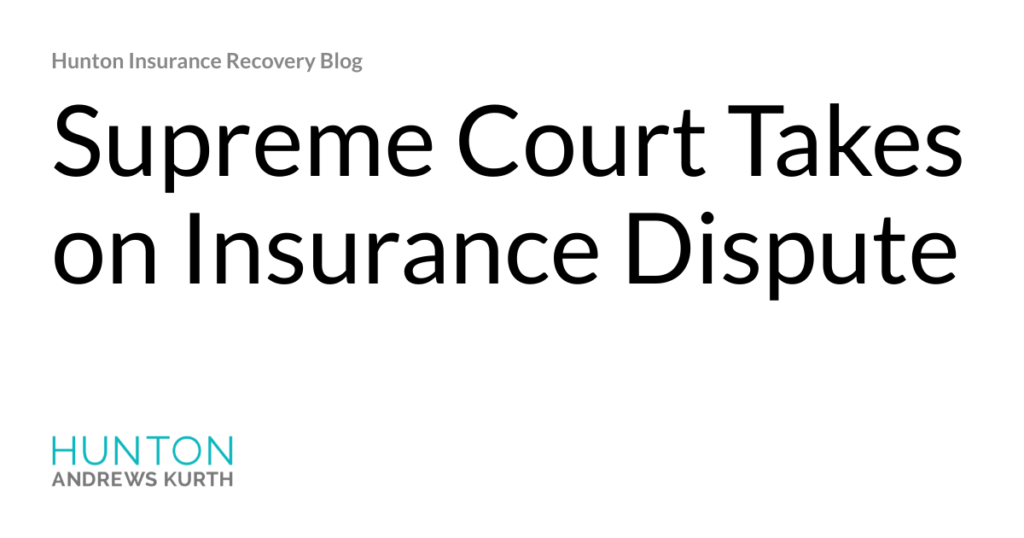Supreme Court Takes on Insurance Dispute

On Monday, March 6, the US Supreme Court agreed to hear an insurance coverage dispute, Great Lakes Insurance SE v. Raiders Retreat Realty Co., LLC. Insurance cases are few and far between in the high court, so both policyholders and their insurers will be watching the Great Lakes case with great interest. Notably, while the case involves the specialized area of maritime law, how the Supreme Court chooses to address the choice-of-law issue it presents could have much broader implications.
The Great Lakes case calls upon the Supreme Court to consider whether the “strong public policy” of a state where a case is filed can override the presumptive validity of a choice-of-law provision in a maritime insurance contract. That staid legal issue does not tell the whole story, however. In Great Lakes, the parties are arguing about whether the choice-of-law provision in a shipowner’s insurance policy governs the state law that applies to the shipowner’s extra-contractual “bad faith” claims against its insurer, which refused to pay damages after a ship ran aground. Different states apply vastly different legal standards to determine whether an insurer denied coverage in bad faith, and deciding which state’s law applies can be outcome determinative. Here, the insurer says that the choice-of-law provision in the policy (which favors New York law) is inviolable under federal maritime law and voids the bad faith claims the policyholder pleaded under Pennsylvania law. The shipowner disagrees, arguing that Pennsylvania, the state where the insurance coverage case is filed, has a “strong public policy” of holding insurers liable for their bad-faith conduct, making the New York choice-of-law provision unenforceable. Both sides rely on different long-standing Supreme Court maritime-law precedent for their respective positions.
The insurer asked the Supreme Court to take the Great Lakes case on appeal from the Third Circuit, which sided with the shipowner that the maritime choice-of-law provision would have to give way if the forum state of “Pennsylvania has a strong public policy that would be thwarted by applying New York law.” In its decision, the Third Circuit also alluded to the “more intriguing argument” that the choice-of-law provision in the maritime insurance policy, even if valid, did not unambiguously dictate that New York law applied to the shipowner’s extra contractual bad-faith claims. The Third Circuit declined to reach the ambiguity issue, however, because the policyholder had not raised it in the district court case.
How the Supreme Court addresses the choice-of-law issue here could have significant ramifications not only for maritime cases going forward, but also for other disputes over choice-of-law provisions. On one hand, the Court could narrowly conclude that federal maritime law upholds choice-of-law provisions as to both contractual and extra contractual claims, irrespective of any potential conflicts with forum state law. That ruling might be confined to the maritime-law space. Alternatively, however, the Court could decide, as did the Third Circuit, that a choice-of-law provision cannot be used to thwart the public policy of the forum state, particularly in the context of state-law-dependent insurance claims. This latter approach, even if couched in the maritime law framework in Great Lakes, would no doubt embolden parties to challenge the application of choice-of-law provisions that conflict with forum state law in a wide variety of insurance disputes. As a result, court watchers anticipate that policyholder and insurance groups alike will seek permission to submit amicus arguments to the Court supporting their respective views.







